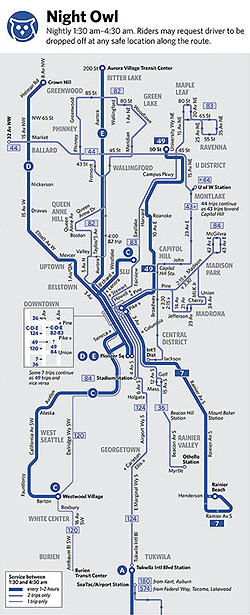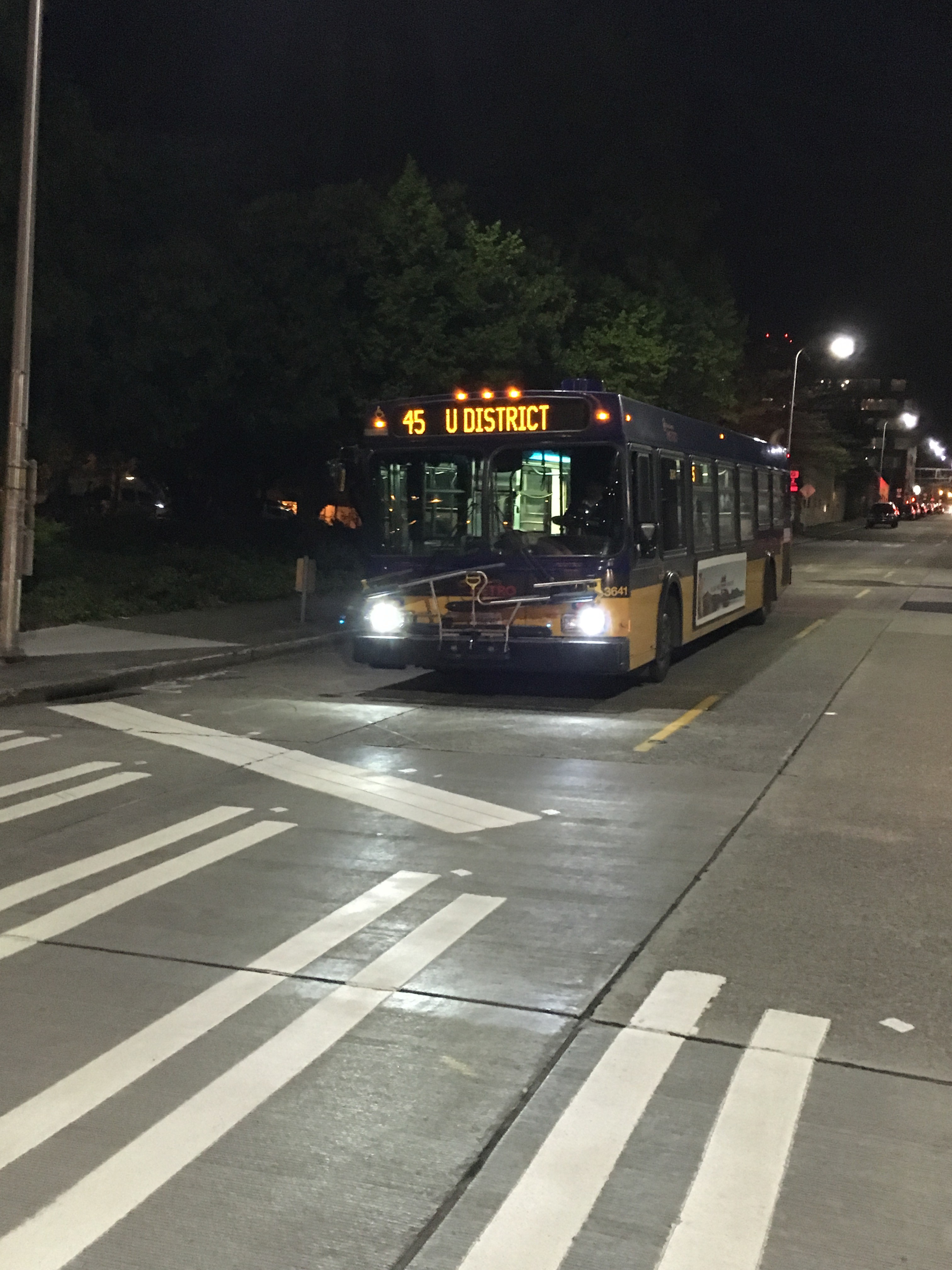King County Metro is wading into a process to evaluate and overhaul the late night bus network. The agency has long operated a late night bus network, which is still visible with the maddening spaghetti routes of the 80 series. Night owl bus improvements have occurred over the past decade, but the primary focus of those have been through the progressive implementation of RapidRide routes and select allocation of new trips to core workhorse routes like the 7 and 49.

This new initiative, however, would be the first time in many years that the agency has seriously considered a real transformation of the late night bus network. To begin this process, Metro is seeking feedback from regular night riders, and folks who may not be riding at all. The survey ask riders about their current late night bus habits, why they ride at night, and what issues might deter them from making trips.
As our region grows and changes, our need to get around 24 hours a day is also growing.
While there are up to 40 late-night routes that help riders throughout King County get to and from jobs and entertainment, it’s been many years since Metro Transit took a wide-ranging look at how well the late-night service is working. That’s why Metro is now reaching out to riders to learn more about how they use late night service, especially trips that run between midnight and 5 a.m.
Metro knows late-night bus service is essential in serving people who work night-shifts, go to the airport or take in the nightlife. But this service has not undergone significant change for many years. So Metro is now reaching out to riders to identify how well the system is working or not working for them.
During this round of outreach, Metro is inviting riders who use the bus late at night to take our survey. Customers will be asked about their travel habits, how they are using the service and whether they experience barriers to using late-night service. Riders who don’t take the bus at night might have thoughts about other types of late-night bus service that could meet their needs.
Metro will also partner with the Seattle Department of Transportation (SDOT) to reach out to key stakeholder groups, human service agencies and others to better understand employment patterns and the needs of underserved groups, in addition to talking directly with riders who use the bus during the nighttime hours. Metro will accept feedback via its survey through May 4.
When the outreach is complete, Metro and SDOT will review the customer feedback and determine next steps. Possible outcomes would range from adjusting hours of service to making changes to routing.
Stephen is a professional urban planner in Puget Sound with a passion for sustainable, livable, and diverse cities. He is especially interested in how policies, regulations, and programs can promote positive outcomes for communities. With stints in great cities like Bellingham and Cork, Stephen currently lives in Seattle. He primarily covers land use and transportation issues and has been with The Urbanist since 2014.



